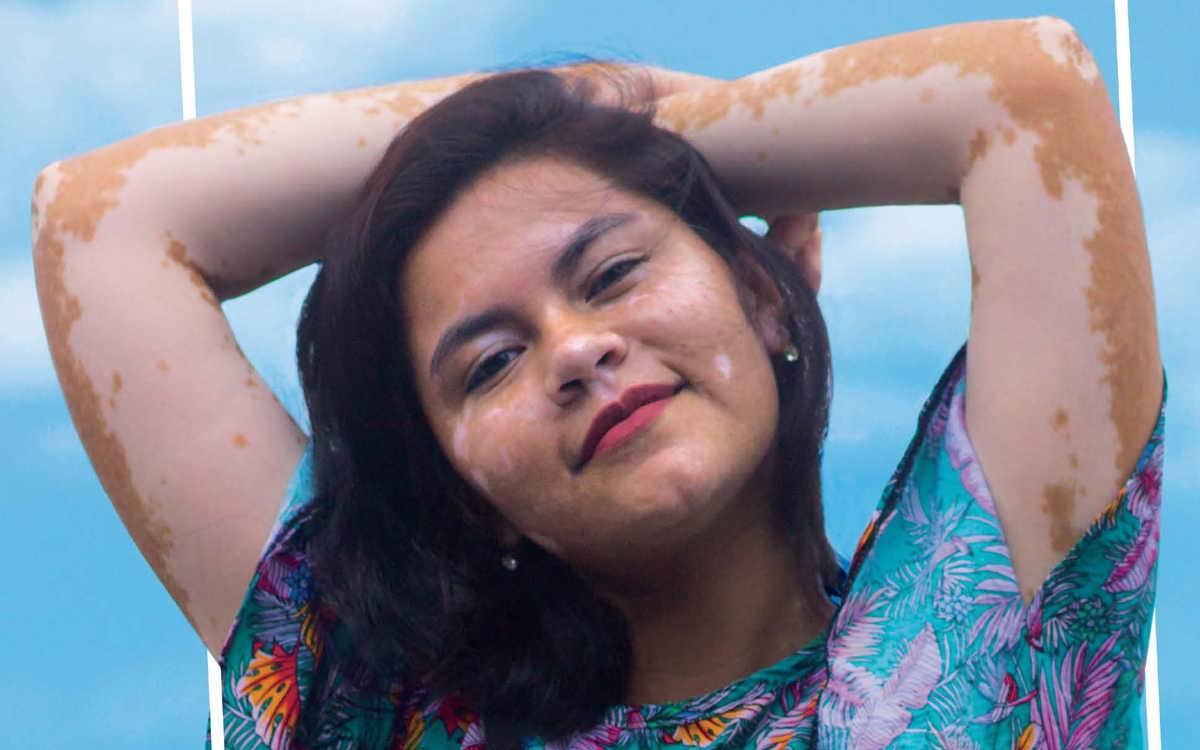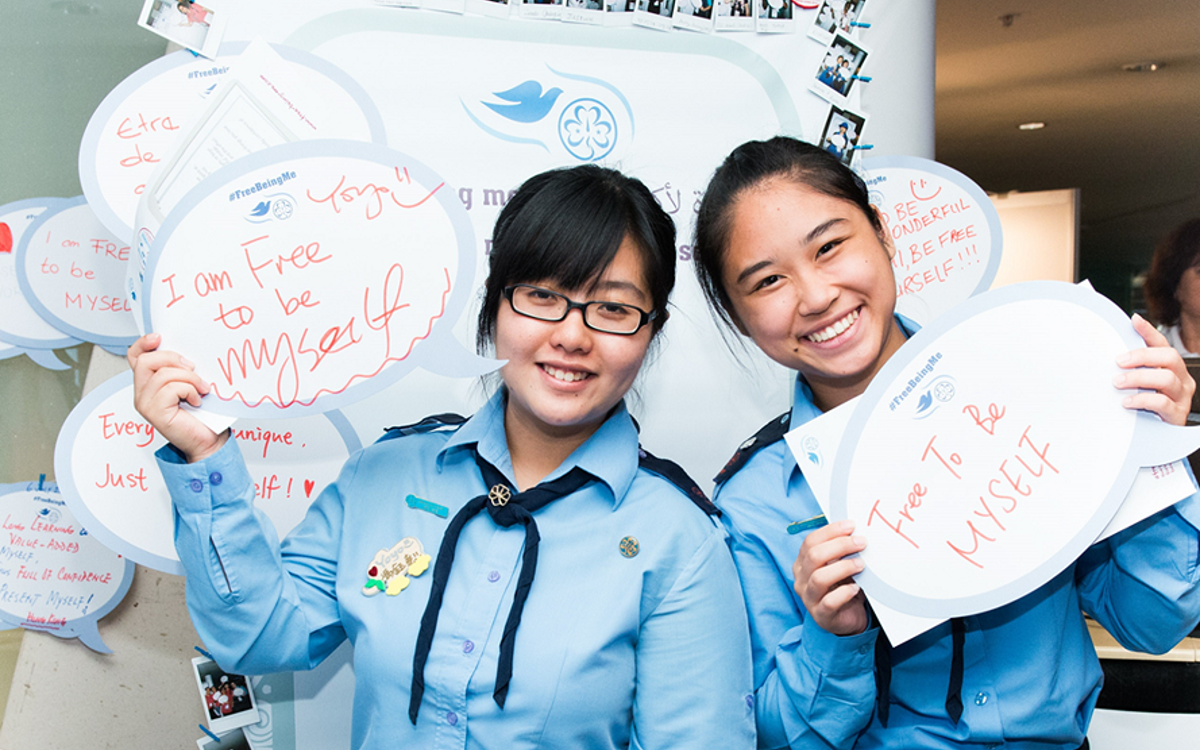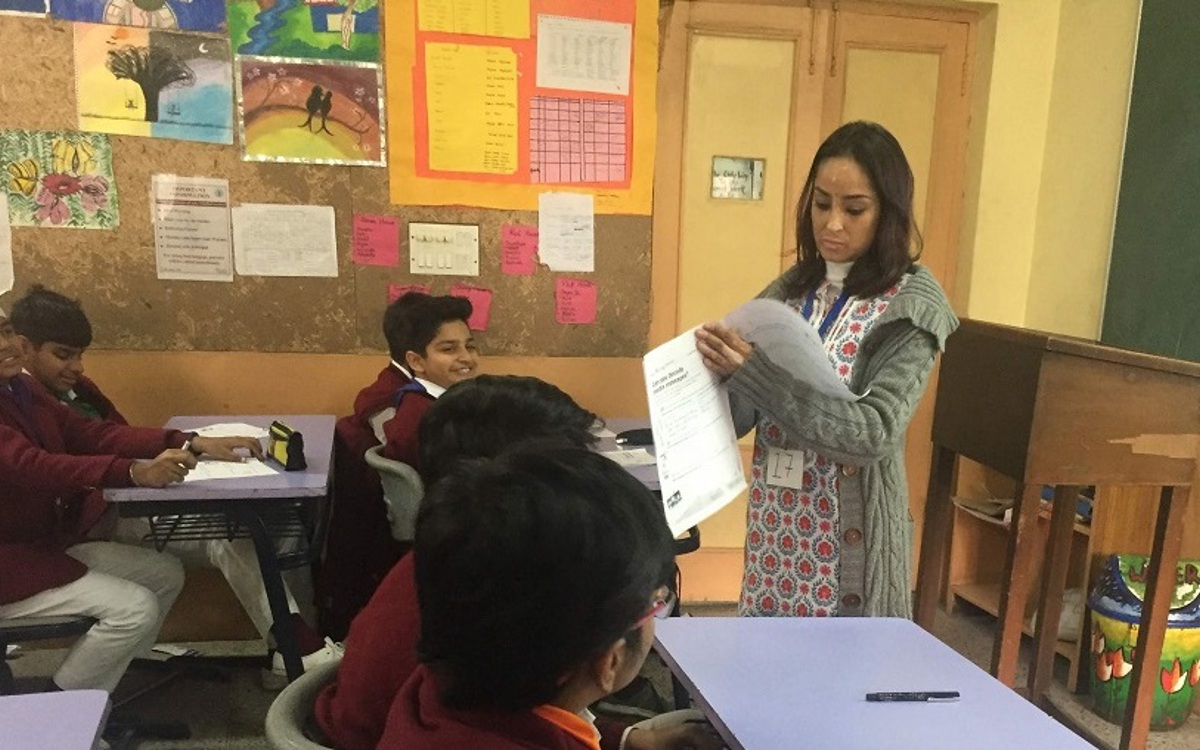The second of two articles on appearance-related anxieties highlights the devastating impact of body image concerns on young lives. By Kirsty Garbett, University of the West of England, UK

Plagued by body image concerns, girls everywhere are retreating at a time when society desperately needs them to step forward.
By Kirsty Garbett, University of the West of England, UK
All over the world, body image concerns are stifling the potential of young women and girls. A global study in 2017 found that more than half of adolescent girls worldwide do not feel confident about how they look – a finding which has been replicated multiple times in countries around the world.
Girls are told that the most important thing they can be is pretty, and as a result, are choosing to disengage from activities that might impede their quest for the ‘perfect’ appearance. This includes opting out of activities that draw attention to their bodies or choosing not to partake in sports for fear of sweat patches or a flushed face. For others, it might mean excessive exercise and dieting in pursuit of an idealised figure. Disengaging from classroom debate, skipping a doctor’s appointment, or hiding away during social events – we see girls withdrawing in these ways consistently across the world. In fact, a global study found that as many as 8 in 10 girls with low body esteem will avoid these important life activities. Girls are retreating at a time when society desperately needs them to step forward.
The impact of body image concerns on adolescent health and wellbeing has been rigorously evaluated and is not pleasant reading. Longitudinal studies show that body image concerns lead to lower self-esteem, symptoms of depression, increased risk of disordered eating, and unhealthy weight control behaviours. We also know that body image concerns are associated with suicide, self-harm, substance misuse, and consideration of cosmetic surgery. Weight concerns specifically – fuelled by the diet industry and government-led public health campaigns that declare a ‘war on obesity’ – actually lead to a reduction in fruit and vegetable consumption and reduced physical activity.
Body image concerns have economic implications, too. ‘Costing the invisible’, a report commissioned by the UK Government Equalities Office, highlights the problematic economic consequences of appearance concerns. Drawing on the expanding research base in this area, the report presents data linking body image concerns with poorer school grades and academic achievement, as well as compromised work performance and promotion potential in later life. Body image concerns don’t just have an economic cost for the individual: society as a whole misses out because of something that, on the face of it, seems so avoidable.
A body of knowledge
Despite painting a somewhat bleak picture, there is reason to be hopeful. A small but growing academic field is focused on finding ways to alleviate the appearance pressures faced by young people. Over the past 30 years, we have come to recognise what works, what doesn’t, and what actually causes harm. For example, we know that intervention strategies that involve media literacy techniques and cognitive dissonance (which, in this context, involves challenging and speaking out against societal appearance pressures) can provide young people with the confidence and tools they need to alleviate these pressures, at least in the short term. We also know that interventions can be effective in schools and community settings, as can digital initiatives.
Importantly, we know that good intentions are often not enough; some very well meaning interventions have been shown to cause harm, inadvertently raising young people’s awareness of appearance issues without giving them the tools to manage these pressures. This is why evidence-based practice is so important.
Beyond focusing on the individual to challenge appearance pressures, we know that a change in the media landscape can reduce body image concerns. For example, media campaigns that feature diverse, realistic representations of women encourage body confidence among viewers. Promoting diversity involves showcasing various visions of beauty, as well as rejecting the use of airbrush techniques to ‘fix’ women’s bodies.
Despite this abundance of knowledge, as academics we are faced with the old familiar question: how do we translate this knowledge into practice? How can this knowledge create impact? And how do we disseminate these strategies to those who need them?
Partnering with industry
Since 2012, the Centre for Appearance Research (CAR) at the University of the West of England has partnered with the Dove Self-Esteem Project to develop, evaluate, and disseminate educational programmes that promote body confidence. CAR is the world’s largest research group focusing on the role of appearance and body image in people’s lives. The Dove Self-Esteem Project is a global education initiative founded in 2004 by Dove to ensure the next generation grows up enjoying a positive relationship with the way they look. By capitalising on scientific evidence and the expertise of academics, alongside the impact and influence of the Dove Self-Esteem Project, we have already been able to reach over 62 million young people globally with evidence-based tools.

Over the past seven years, the Dove Self-Esteem Project and CAR researchers have developed and evaluated numerous tools for young people: a series of short cartoon animations, a smartphone game, an ebook, an online information hub for parents, a body confidence badge programme in partnership with World Association of Girl Guides and Girl Scouts, and school-based workshops for teachers. The Dove Self-Esteem Project is currently partnering with UNICEF in the development of a chatbot in Brazil, a series of comic books in India, and a school-based resource for inclusion in UNICEF’s Life Skills Curriculum in Indonesia. Wed throughout each of these projects is the academic involvement of CAR researchers, who ensure that each tool targets the core risk factors for low body confidence. We also rigorously test each programme through randomised controlled trials across the world to ensure their effectiveness.
To develop each tool, our researchers draw on the best available evidence in the academic field, as well as extracting insights gained by the Dove Self-Esteem Project. From there, we collaborate with academic institutions in different countries or communities, along with local psychologists, educational experts, and government organisations. We put girls at the centre of everything we do, ensuring that we incorporate their opinions, needs, and preferences into whatever we create.

As well as educational tools for young people, CAR researchers work with the Dove brand more broadly to bring about wider cultural change through their marketing campaigns and brand communications. In 2019, for example, our academic insights informed the development of Project #ShowUs, a groundbreaking stock image library featuring over 5,000 unretouched, diverse depictions of women and non-binary individuals across 39 countries photographed by female-identifying photographers. The photographs aim to shatter beauty stereotypes by showing women as they are, not as others believe they should be, and have been used by major brands and media globally.
A global challenge
Moving forward, in partnership with other academics, we are continuing to diversify and extend our knowledge base beyond high income countries. While we know much about how body image concerns manifest in some areas of the world, we know relatively little about these concerns in low and middle income countries – and even less in rural areas of these countries. As an academic team, we’re committed to understanding the cultural specificities of body image concerns in any region or country in which we work, and we dedicate a large proportion of our time and effort to the development of accurate measurements and validation, and to the careful co-creation of interventions with local experts and organisations.
We are always looking for new and innovative ways to reach and engage young people, whether through new collaborations, technological advances, or learning from other mental and public health initiatives. Increased commitment and collaboration will ensure that young women everywhere grow up channelling their energy into reaching their potential, at work, in school, and at home, rather than feeling held back or preoccupied with the way that they look.
Kirsty Garbett is a Research Fellow at the Centre for Appearance Research at the University of the West of England, UK. Her role is funded by the Dove Self-Esteem Project.
The Centre for Appearance Research works in partnership with colleagues from Lady Shri Ram College for Women in India, whose work to understand the impact of appearance pressures on young women in India is also featured in this issue.
Image (top) is courtesy of Project #ShowUs, a collection of over 5,000 images of women and non-gender binary individuals that aims to shatter beauty stereotypes. Other images courtesy of Dove and the Centre for Appearance Research.
